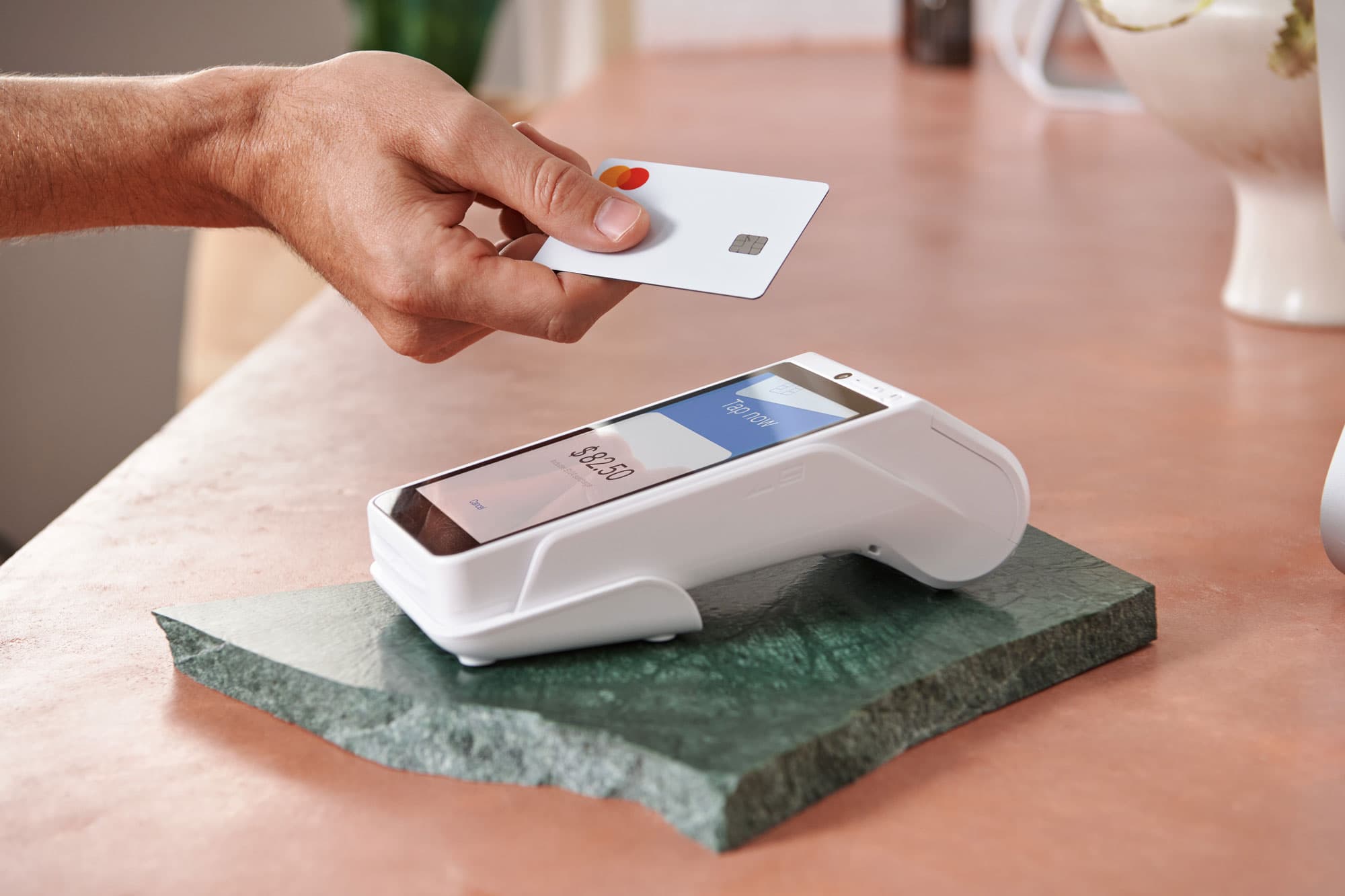
- Business Growth & Optimisation
11 Low-Cost Business Opportunities to Explore in 2022
Want to start a successful business this year? Here's how.
The past 18 months have offered somewhat of a professional wake-up call. Merchants have been forced to re-evaluate how they run their businesses, while employees have needed to rethink where (and how) they work. In essence, many industries are in a state of flux as a result of the pandemic.
One phenomenon brought about by this reshuffle is The Great Resignation. Extended lockdowns sparked countless epiphanies in 2021 — prompting people to realise their current role doesn’t deliver on fulfilment or flexibility, and leading many to consider starting their own business in 2022.
The pandemic has also impacted consumer trends and unearthed a slew of fresh business opportunities that offer new and exciting forays into entrepreneurship, for those willing to take the leap.
Entrepreneur hopefuls are in good company
Months of working from home has given Australians space to reconsider their personal priorities. With more hours spent at home, professionals have realised the illusive work-life balance — or at least the freedom to choose when they work — isn’t as out of reach as it once appeared to be.
According to the ABS, the number of small businesses jumped by 15.2 per cent over the last financial year. Despite fears that the pandemic would deter would-be business owners from taking a risk, the opposite has proved true. In the first six months of 2021 alone, around 152,000 companies were registered in Australia — compared to 113,000 in the same period in pre-pandemic 2019.
Potential business owners are feeling gutsier and more optimistic than ever, and with good reason. Yet with one third of Australian businesses failing within the first three years of operation, it pays to put in the groundwork.
Considering running your own business? Keep reading to discover 11 profitable business ideas to start and grow in 2022, as well as information about taking the next step towards business ownership.
New business ideas for 2022 and beyond
1. Sustainable products
90% of Australian consumers want sustainable products. If your business idea presents a rare and environmental alternative to a popular product, there’s a good chance your business could prove profitable — with the right strategy. Conscious consumerism is a rapidly growing trend.
To support your offering, consider how feasible it would be to implement ethical and sustainable practices within your business. Practising what you preach will increase your business’s appeal, particularly with younger audiences who are actively spending with brands who support their own values.
2. Pet services
The pandemic has given way to a nationwide surge in pet ownership. In Victoria, pet adoption rates reached a decade high. Meanwhile, cat and dog owners across the country spent a collective $30.7 billion on their pets in 2020 alone.
More pets (and more money being spent on those pets) spells big opportunities for dog walkers, pet groomers, trainers and carers. Luckily, many of these services have low barriers to entry. Walkers and carers, for example, may only need to invest in basic equipment and apply for a security check.
On the other hand, a mobile dog grooming business would require a more substantial initial outlay — as you’ll need a mobile cart, as well as clippers and other tools. A portable EFTPOS machine will enable you to accept payment from the road, rather than waiting to issue an invoice at a later date.
Funds accepted via Zeller Terminal are swept into your free transaction account the same day, and available for spending the next – so you can quickly purchase additional tools and supplies as your new business grows.
Ready to get started with Zeller?
Sign up for free3. Freelance support
Where full-time employment once provided the security of regular income, the current labour shortage has since sparked a migration to freelance working. Freelancers by nature can enjoy greater flexibility as they often determine their own hours, workload and hourly rate.
According to Airtasker, an online community platform that connects people who need to outsource tasks with workers, there has been a substantial increase in the amount of work available for freelancers. The gig economy marketplace shows that, over the last 18 months, there has been a:
24.8% increase in finance and business jobs
48% increase in general business and administration tasks
90% increase in sales and telemarketing jobs
45% increase in demand for social media support
145% increase in tasks related to marketing, surveys and internet research
21% increase in website and app development jobs
Yet it’s important to remember that the flexibility offered by freelancing comes at a cost. Don’t forget to factor considerations such as seasonality, tax costs, and unpaid sick leave into your decision.
4. Massage therapist
Poorly set up home offices and missed therapist appointments have contributed to a substantial demand bottleneck in the health and wellbeing industry, creating a valuable gap in the market.
A massage therapy business provides a certain level of flexibility, as you can opt to rent your own space or operate as a mobile provider. Either way, the nature of the service means you’ll have to invest in rigorous health and hygiene practices to alleviate any apprehension felt by potential customers.
Importantly, training and certification courses will be required.
5. Beauty technician
For similar reasons, beauty technicians are in enormous demand — and, thanks to the flexibility offered by remote working, more people are now able to book appointments during regular work hours.
Zeller data shows that in 2021, midday was the busiest (and most profitable) time for beauty salons. The ability to work regular daytime hours makes beauty therapy a more attractive career option than ever.
The options are endless — from waxing to tanning and manicures. However, it’s important to consider the detail and quality expected by services such as nail artistry. Be sure to gain the relevant qualifications and experience before opening your business.
6. Clothing boutique
Have you got an eye for fashion? Now could be the perfect time to open a small boutique.
You could begin with a small-scale second hand store with low inventory costs, or go straight into producing and stocking your own designs. Keep in mind there are a number of costs and considerations that come with opening your own premises and producing your own products.
Another idea is to begin by selling your wares online at nearby markets, and tapping into consumers’ desire to support local.
7. Specialty food store
Is it difficult to purchase a particular type of produce in your local area? Have a think about what specialty food is difficult to source — it could be fresh gluten-free pasta, organic wine, vegan cheese, or something different entirely. There could be a business opportunity in this space.
The key to successfully opening a specialty produce store is in the name: specialty. Ensure your offering is unique enough that you are able to carve out your own local niche, and become the go-to merchant for a particular product. Customers are then more likely to make the trip to your store, and stick around to purchase other items.
8. Food truck
Owning your own food truck is a great stepping stone into the hospitality industry. Its small-scale nature means you’ll learn the ins and outs of managing a food business before taking the full leap into running a full-scale premises, which comes with the added costs of a lease, staffing, and the rest.
Make sure you take the time to scope out local markets and scope out what’s popular, and determine what your point of difference will be. There’s little point opening a food truck that serves pizza if there’s already a long convoy of well-established, popular wood fired pizza vans in your local area. But what about a dessert option?
Considering running your own food truck? Visit the blog to discover more about licensing and making smart menu choices.
9. Personal training
Gyms have suffered enormously throughout the pandemic, being one of the last businesses permitted to open as lockdowns come to an end. This makes the idea of operating a gym an unlikely one.
That said, many Australians have spent the better part of two years cooped up inside their homes. If you can deliver a health and fitness service that presents a competitive advantage over low-cost gym franchises, you could be on the money.
10. Coffee shop
Australians love coffee. That’s probably why, in every major Australian city, good coffee shops are a dime a dozen. The demand is there.
You could consider introducing your own competitive advantage to the established city scene, however the real opportunity here lies in bringing Melbourne-grade coffee to the outer-city suburbs and regional towns. After all, the pandemic prompted hordes of city-workers to uproot themselves in search of more space.
Opening a coffee shop requires a lot of planning, so make sure you understand what’s involved. Visit the blog for everything you need to know about starting a new coffee shop business.
11. Cleaning service
Good hygiene and cleanliness has never been more important than it is now. In fact, residential cleaning was the most searched home service in 2021, signalling an unprecedented demand for quality cleaning.
With a low barrier to entry, cleaning houses could be a profitable way to break away from the 9-5. Consider a letterbox drop to nearby homes to get the word out; your first client may be only a few doors down. Small businesses also require cleaning, and usually bring in a higher paycheck for a similar amount of work.
Yet while the demand for quality cleaning services is clearly there, launching your own cleaning business could be a costly initial investment. Be sure to do your research on the safest and highest quality products and equipment available — especially as COVID-19 outbreaks continue to occur.
Pause before taking the plunge
Starting a business is an extremely exciting first step towards what could become a long and rewarding career. Taking the time to properly research your idea now will ensure you’re making a calculated and informed decision that will likely result in better market performance later.
Consider, for example, the opportunity size your business idea presents. What’s the market size? Who would your customers be? Next, ask yourself: is this a temporary fad or an emerging market? Will it still be relevant in one, five or more years?
Once you’ve assessed whether your business idea is a viable one, you should reflect on what you’re looking to gain from the business. Will it be a side hustle business, or does it need to provide enough income from day one to allow you to step away from your day job? What hours are you willing to work, and what will you do if the business demands more time from you?
These are important questions to ask yourself before taking the entrepreneurial leap. When you’re ready to put pen to paper, visit the blog to learn how to write your first business plan.
Ready to get started?
It goes without saying that the small business landscape has changed. More and more people are taking advantage of the opportunities the pandemic has presented.
What matters most of all is that customers’ expectations around payment methods have changed in the last two years. Cash-in-hand simply doesn’t cut it anymore. Customers want swift, contactless transactions and proof of payment.
Similarly, businesses that rely on invoicing are being forced to wait longer and longer to receive payment for goods or services already rendered (and waste precious time chasing up late payments) — making an EFTPOS terminal a critical business tool.
With Zeller, it couldn't be more simple to get your business off the ground and accept your first transaction. Every Zeller Kit comes with a Zeller Terminal, Zeller Transaction Account and Zeller Mastercard. With one low transaction fee and no ongoing monthly or hidden fees, Zeller enables you to accept every payment from every customer — and keep more money in your growing business.



